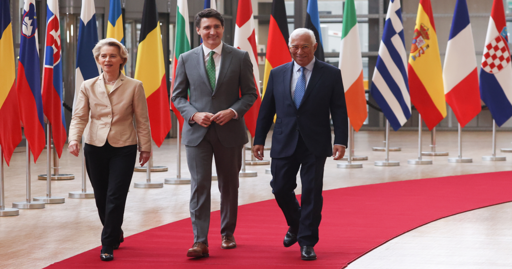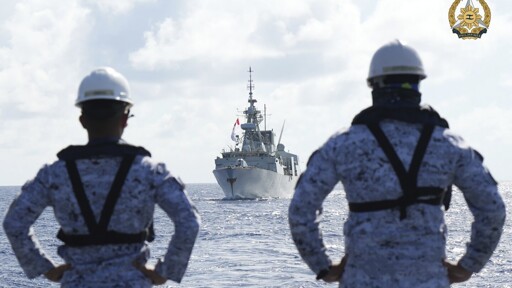- 3 Posts
- 0 Comments
Joined 25d ago
Cake day: Jan 29, 2025
You are not logged in. If you use a Fediverse account that is able to follow users, you can follow this user.
The federal government is going to court to force a Toronto company to sell a $34-million stake in a Calgary-based lithium firm that it bought off a Chinese company.
**The government had already deemed the previous Chinese owner's investment in Lithium Chile Inc. to be harmful to national security, and it says in a Federal Court application that the new buyer has failed to co-operate with efforts to prove it isn't owned or influenced by China's government either.**
Lithium is a critical mineral used in batteries and clean power. The application says it is at the heart of Canada's "energy security in the transition to a low-carbon economy."
The Attorney General of Canada filed the application in Federal Court this month for an order directing Gator Capital Ltd. to dispose of its shares in Lithium Chile, headquartered in Calgary with mining properties in Argentina and Chile.
The government claims that Gator's owner, Wing Hong Chan, has not replied to any demands for information after it paid $34 million for the 20 per cent stake in Lithium Chile.
"Gator has repeatedly and deliberately failed to provide information in response to multiple requests for information, three ministerial demands, and repeated attempts to obtain a response from Gator and/or Mr. Chan," the application says.
...
Under the Investment Canada Act, the minister can order foreign actors to divest from Canadian businesses if their investments are found to be potentially "injurious to national security"
Chengze Lithium was given 90 days to sell, and one condition of the divestment order was that it couldn't sell or assign them to a Chinese state-owned enterprise, or a company under the influence of the government of the People's Republic of China.
...
- @Hotznplotzn@lemmy.sdf.org to
- •
- www.wilsoncenter.org
- •
- 2d
- •
cross-posted from: https://lemmy.sdf.org/post/29860748
> The Canada-EU Leaders’ meeting took place on February 12, 2025. Canadian Prime Minister Justin Trudeau, European Commission President Ursula von der Leyen and European Council President Antonio Costa met to discuss ways for EU and Canada to work more closely to promote global economic security and stability amidst rising geoeconomic tensions.
>
> ...
>
> With President Donald Trump confirming a 25% tariff on all steel and aluminum imports—alongside a separate, still-pending tariff specifically targeting Canada and Mexico, which would be stacked to a whopping 50%—Trudeau arrived in Europe seeking to reinforce economic alliances and push back against US protectionism.
>
> ...
>
> Trudeau emphasized that partnerships like NATO and Comprehensive Economic and Trade Agreement (CETA) thrive on trust. “You can always trust Canada,” he told reporters, highlighting how CETA has increased Canada-EU trade by 66% since 2017.
>
> ...
>
> Yet, as US protectionism escalates, Canada and Europe must look beyond existing agreements. Expanding cooperation in critical sectors like minerals, clean energy, and technology could help both sides reduce dependence on the US market and build a more resilient economic framework.
> ...
>
> Though the EU and Canada have the CETA trade agreement—which they have touted as important for trade and investment—and a critical minerals partnership, in a hyper-competitive global economy they need to further deepen and strengthen economic ties.
>
> ...
>
> Canada utilized the meeting to further discussions on enhancing their security and defense cooperation. Since 2021, Canada’s participation in the EU’s Military Mobility project, alongside the United States and Norway, has boosted EU-NATO cooperation and has become yet more relevant since Russia’s invasion of Ukraine in 2022.
[Archived](https://web.archive.org/web/20250209130553/https://apnews.com/article/canada-philippines-south-china-sea-129b827017ade938af3c1f1e262fc72f)
Canada and the Philippines are in the final stages of negotiating a key defense pact that would allow their forces to hold larger military drills, said the Canadian ambassador to Manila while raising concerns over China’s “provocative and unlawful actions” in the region.
Canada has been reinforcing its military presence i n the Indo-Pacific region and has committed to help promote the rule of law and expand trade and investment.
That dovetails with Philippine efforts under President Ferdinand Marcos Jr. to broaden defense ties with friendly countries to bolster his country’s external defense as it faces an increasingly assertive China in the disputed waters.
Canadian Ambassador David Hartman said Friday night that his country and the Philippines were “in the final stages of the negotiations of our status of forces visiting agreement that will enable us to have even more substantive participation in joint and multilateral training exercises and operations with the Philippines and allies here in the region.”
[...]


